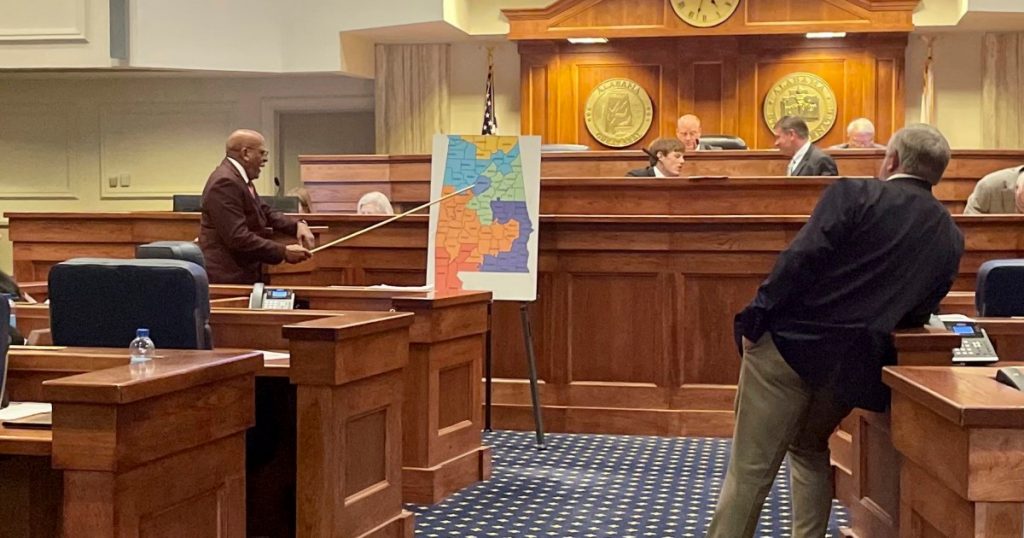The Supreme Court Just Rejected Alabama’s Attempt to Deny Representation to Black Voters. Again.
Alabama state Sen. Rodger Smitherman discusses a redistricting proposal during debate at the Statehouse in Montgomery, Ala., on July 19, 2023. Kim Chandler/AP
Fight disinformation: Sign up for the free Mother Jones Daily newsletter and follow the news that matters.The Supreme Court on Tuesday rejected Alabama’s attempt to avoid drawing a second majority-Black congressional district in a short order by Justice Clarence Thomas with no noted dissents. It marks the second time in three months that the court has rejected Alabama’s efforts to deny fair representation to Black voters.
In early 2022, a three-judge panel that included two appointees of Donald Trump found that Alabama violated the Voting Rights Act by failing to draw a second majority-Black congressional district in the state. Alabama has a Black population of 27 percent, but just one of the state’s seven congressional districts was likely to elect a candidate favored by Black voters under the maps drawn by Alabama Republicans. In June, the Supreme Court, in a surprise victory for voting rights, affirmed the lower court’s ruling in Allen v. Milligan, paving the way for Alabama to draw a second majority-Black district.
But over the summer, Alabama Republicans flagrantly defied the orders of the federal district court and the US Supreme Court. Instead of drawing a new majority-Black district, the state legislature in July drew a seat that was only 40 percent Black and would have been easily carried by Trump, while lowering the Black population in the state’s lone majority-minority district. Alabama Republicans admitted they consulted with Speaker of the House Kevin McCarthy in a bid to keep the seat red.
The three-judge panel then struck down that new map in early September, using unusually pointed language to rebuke the state. “We do not take lightly federal intrusion into a process ordinarily reserved for the State Legislature,” the court wrote. “But we have now said twice that this Voting Rights Act case is not close. And we are deeply troubled that the State enacted a map that the State readily admits does not provide the remedy we said federal law requires.”
Alabama appealed to the Supreme Court again, challenging the constitutionality of the Voting Rights Act with help from Federalist Society co-chairman Leonard Leo’s dark money network.
But the appeal was unsuccessful. Meanwhile, the three-judge panel ordered a special master to draw new lines for the state. He submitted three plans on Monday that all create a second district where Black voters comprise a majority of the voting age population or close to it.
After a three-year fight, it appears that Black voters will finally have a chance to achieve fair representation in Alabama in 2024.





